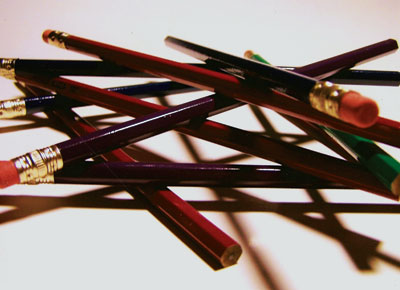All Nonfiction
- Bullying
- Books
- Academic
- Author Interviews
- Celebrity interviews
- College Articles
- College Essays
- Educator of the Year
- Heroes
- Interviews
- Memoir
- Personal Experience
- Sports
- Travel & Culture
All Opinions
- Bullying
- Current Events / Politics
- Discrimination
- Drugs / Alcohol / Smoking
- Entertainment / Celebrities
- Environment
- Love / Relationships
- Movies / Music / TV
- Pop Culture / Trends
- School / College
- Social Issues / Civics
- Spirituality / Religion
- Sports / Hobbies
All Hot Topics
- Bullying
- Community Service
- Environment
- Health
- Letters to the Editor
- Pride & Prejudice
- What Matters
- Back
Summer Guide
- Program Links
- Program Reviews
- Back
College Guide
- College Links
- College Reviews
- College Essays
- College Articles
- Back
An Ok Paper
“How was the show?”
“It was ok.”
“Please do the dishes.”
“Ok.”
“OUCH!”
“Oh my gosh, are you ok?!”
“The aliens landed right in my backyard and taught me to dance! I swear it’s true!”
“Okaaaaay…”
According to the Merriam-Webster New Collegiate Dictionary, the full definition of the word “ok” is “all right.” A simple definition for a simple word. I think, though, that this definition is lacking. Ok is not simple. Not simple at all. “Ok” is an iceberg, and “all right” is merely the tip.
Ok is a word that, depending on context and tone, can mean anything. It’s all about how it’s used. It can be a noun; “He gave the project his ok.” It can be an adjective; “That was ok.” It can be an exclamation; “Ok!” It can even be a verb; “She okayed it.”
Ok is “fine” and “yes” and “good” and “poor” and “no” and “really?” and “huh.”
Words by themselves are superficial. If language is to have any depth at all, there must be subtext. Reciting words from a script is one thing. Bringing words to life is something else completely. Every utterance has substance. It may be buried, but it’s in there somewhere. The trick is pulling it to the surface.
“Myah, will you vacuum the living room?” my dad asks.
“Ok,” I sigh.
This ok is an agreement. A contract of sorts, albeit a resigned one. What I mean by ok is “yes, I will vacuum the living room. But I don’t want to. I’m not happy about this.”
“I used to play music in bass clef, but then I got too good, so my band director switched me to treble clef,” claims my fellow euphonium player.
“Ok.” When I say this, the pitch of my voice starts high, dips down, then swoops back up. It is a tone you might use when talking to a child. It is not a tone used by someone who believes she is being told the truth. My subtext here is “that’s definitely not true, but I’m not out to hurt your feelings, so I’ll leave it alone.”
I’m standing by my locker chatting with a friend when a student walks by wearing what appears to be a wizard costume. It is not Halloween. My friend turns to me, raises her eyebrows, and says, “Ok then?” Her voice starts low and slides up with the inflection of a question. This ok means, “What was that about?”
One of ok’s greatest strengths is that it doesn’t really have to mean anything. It can be comfortably used as a filler in any conversation. If I don’t know what to say, or don’t really have an opinion, ok will save me. If I don’t have anything to add, or want an interaction to end, I turn to ok. If I need to break an awkward silence, ok is the starting block from which I leap into conversation.
“Football is way better than baseball.”
“Ok.”
“Hey, Myah! I saw Trevor yesterday and he has this CD he made. It’s all Christian country, like Christian rock, but country!”
“Ok.”
“....”
“Ok, so I was at the store the other day and…”
I personally find ok’s most endearing role to be that of the exclamation. There’s something innocent and pure about it. When a child is asked to play, her response is a delighted “Ok!” When a person is about to start a presentation, she’ll say “Ok, let’s begin!” When a friend asks me if I want to go to the coffee shop, my reply is “Ok!” Ok used like this means “Yes, I would like that!” or “I’m ready to do this!”
As near as etymologists can figure, the word ok originated as an abbreviation of “orl korrect,” a bastardization of “all correct.” It was popularized as a slogan during the presidential campaign of 1840 when Martin Van Buren was running for re-election. The initials “O.K.” were taken from Van Buren’s nickname, “Old Kinderhook.” (Oxford Dictionary)
This acronym that started as a political joke quickly worked its way into the vernacular. Less than two hundred years later, it has taken on a thousand lives and a thousand meanings.
Ok is a Swiss army knife. It’s an agreement, a put down, a form of derision, a compliment, a word of approval, and so much more. It can mean anything in the world, or nothing at all. It’s a chameleon of a word. It is potential. It is whatever you make of it. And that’s ok.
Works Cited
"Oxford Dictionaries - Dictionary, Thesaurus, & Grammar." Oxford Dictionaries. Oxford Dictionaries. Web. 28 Oct. 2016.
Woolf, Henry Bosley. Webster's New Collegiate Dictionary. Springfield, MA: Merriam, 1979. Print.

Similar Articles
JOIN THE DISCUSSION
This article has 0 comments.

I was asked to write a paper on the definition of a word for an English class, and I thought it would be fun to write an essay on the word "ok."